THE WEBB FAMILY
By Sheila Saunders (nee Webb)
Introduction
As a young girl, growing up in the 1960s/70s I was very fortunate to be able to spend most Saturdays with my many relatives at Manor farm in Calverton, a small village just outside Stony Stratford. My grandparents were workers on the farm and lived as working tenants in one of the tied picturesque, thatched cottages which were often seen depicted on postcards of this area. They had the first cottage, originally there were 4 separate homes, but have since been converted to 3 homes. In this small 3 bedroomed cottage they raised 8 children (4 boys and 4 girls).
The farm was a great place for the many grandchildren to enjoy; most weekends we would walk to the farm to visit the grandparents and had lots of fun helping ‘Old Taffy’ (one of the farmhands) with the feeding of the calves and other animals. Sometimes there was a newborn lamb in the house which had been rejected by its mother and we would help feed and look after it, there were always chickens and ducks pecking in the yard and wandering into the house. We would all have great fun playing in the hay barn, seeing who would dare jump off the highest bale and riding on Snowflake, the old farm horse, before finally settling down at the big kitchen table to Granny’s stew and dumplings.
The main thing everyone remembers about the cottage is that it was an ‘open house’ literally, no-one ever locked up as you didn’t have to then, and the house was always full of people dropping in for a cup of tea and a chat. Our Grandad, ‘Pappy’ as we called him, was particularly good at recalling old tales and having us in stitches as he sat in the upright chair by the large dresser, flat cap on his head, pipe hanging from his mouth and the cheekiest grin ever, especially as he’d grab your knee and squeeze really hard with his large strong farm workers hands.
The kitchen was always warm, as the Aga (wood burning stove) was always lit and there would be a wonderful smell of cooking mingled with the tobacco smoke from Pappy’s pipe. The kitchen was a hive of activity and full of people chatting and laughing, the Webb family were well known in these parts, everyone knew everyone for miles then, there were a lot less people! People took an interest in the families around the area, they were all locals and their entertainment was in socialising with each other and hearing the news of the various families and events in the area. A real Soap without TV.
My memories are of an idealistic setting which kept the many grandchildren amused for hours, however, my childhood view is very different to my father’s from when he was a child. He was one of the 8 children, who were born and raised in this cottage. This web page is about them and their lives and memories growing up in the 1930s/40s and the many hard and enjoyable times they had, which we wanted to capture, a glimpse of a period in time before it disappears forever! So transport yourself back to a time before Milton Keynes and concrete cows to when this area was just beautiful villages, fields, towns and real cows!
*******************************************************************
Click here to see the Webb familytreev1
To see family videos click on the links below
THE WEBB FAMILY HISTORY
The Webb family consisted of Fred (Great Grandad); his wife Kate, (formerly Eales); Bob (Pappy); Mary (Granny); and their children – Bett, Bob, Dick, Molly, Judy, John, Mick and Jane. This is an account of many of their memories growing up.
The Webb family originated from Alderton, where Great Grandad (Fred Webb) worked on the farm there owned by the Fountain family. Fred and his wife, Kate, raised 11 children in Alderton. My ‘Pappy’(Grandad) (Bob) was the eldest, he met and married Mary Odell (Granny) in Alderton church, Granny was from the nearby village of Yardley Gobion, where her father owned the Butchers there. The Butchers hook can still be seen outside the house known as the Red house.
Bob and Mary had their first child, Bett, in Alderton but by the time Bob was born they had moved to Manor Farm, Calverton, (another farm owned by the Fountains) and there the family grew. Great Grandad Fred stayed at Alderton and when the children were old enough to work, there were 3 generations of Webb’s working together between the two farms at busy times.
At this time, farm workers were the poorest of the poor and often rabbits would be their only source of food. Dick (my Dad) often says they should have all grown ears with the amount of rabbit stew they ate! When the war came, times were even harder as they were on rationing which was barely enough to feed such a large family. Dick recalls that they would have to go up to the big house opposite the cottages, owned by a wealthy publishing family, to collect the swill for the pigs, but many a time the children would grab the best of the waste food for the family first, if they were lucky, they might get a large leftover ham.
Granny had an old coat which she used to wear when they went for walks up the fields. This coat served a good purpose as it hid the rabbits caught up the farm, as rabbit hunting was not generally allowed. However, when the corn was being cut, everyone was allowed their fill of rabbits. Workers from Wolverton Works would find out when they were harvesting and would bike from Wolverton, especially to catch the rabbits. Pappy would stand on the binder (a large corn cutting machine pulled by 3 horses) and scoop the rabbits as he went along.
Food was delivered by various tradesmen with horse and cart or bike. One tradesman used to visit and sharpen your knives on a gadget on his upturned bike. One day when Granny had no money, she told the children to hide under the table and she tied the front door with some shoelaces, as it didn’t have a lock, and they hid as she was too ashamed to admit she hadn’t enough money to have her knives sharpened. But the chap just opened the door as usual, not noticing the laces, and found them all hiding, Granny was so embarrassed.
The children were regarded as extra farm workers and they had to work hard from an early age. Pappy would often take them with him, carrying the youngest child on horseback. When the children were able to hold on they would be placed on the top holding onto the horses’ large collar and go off with Pappy to work up the farm. As soon as the children were old enough, they would have to walk behind the binder and scoop up the sheaths full of thistles, nettles and brambles and put them into bundles of 6 stooks which enabled them to dry and be collected easily. The kids legs and arms would be red raw by the end of the day and there were no soothing baths, mostly they just had to clean themselves up in the cold water at the pump in the farm. They had a bath once a week in a tin bath in the kitchen, they would carry the water up from the pump to be heated on the aga, the cleanest would get in first and Pappy would be last, often his back would be red raw from hauling sacks on his back.
They all had their home tasks to do as well, Bett would have to go up to the farm with a bucket and collect eggs, Bob remembers when he was very young chopping wood for the fires. Dick remembers when his job was to keep Alice the pony constantly going round in a circle to drive the elevator which took the corn up to the top of the barn. As soon as Bob and Dick were capable, they had to milk the cows by hand, a cow which had given birth to her first calf was always a bit dangerous as she wasn’t too keen on anyone touching her baby and would try to head butt the boys, this was when most cows had horns! The boys had to get the cow and calf into the cow shed, put a chain around her neck to hold her, rope the legs together to prevent her kicking them, and get the calf near them so the cow would think her baby was feeding. It was a very tricky job to master.
When the horses needed to be re-shod, Pappy would place Bob and Dick on the horse and send them off to Roberts the Blacksmith’s in Stony Stratford. Often the children would have to wait atop the horse until the Blacksmith had been for his thirst-quenching beer in the pub before they were seen to and then sent on their way back. Bob recalls that they were stopped a couple of times when they were taking the horses home from working in Beachampton and were asked how old they were, because officially they shouldn’t have been on their own in charge of the horse and cart before they were 12 and they were much younger than that.
Dick remembers being scared when they had to load the sheaths of corn onto the trailer, because it was so high. They had to make sure it was stacked accurately or the whole lot would tip over, which it did once when one of the horses decided to trot rather than walk.
A farm worker’s career during those times, started at a young age and continued until you were physically unable. Great Grandad was still stacking the sheaths on the top of the trailer when he was over 70. The vicar once approached the Farm owner, telling him that he shouldn’t still be making him do that at his age, old George Fountain said ‘well you go and tell him then.’ So, the Vicar climbed up the ladder to the top of the haystack and told Great Grandad, and he replied, ‘the best thing you can do is go down before you fall and hurt yourself.’
ANIMALS
Rover
A character who held a large place in the hearts of all the children was Rover the dog. Not only was he a great working farm dog who would fetch the sheep and cattle and know with a word from Pappy what he was required to do, but he was a wonderful family dog too. He often kept them fed when food was scarce. Pappy would tell him to find the rabbits, and he would go over the field by the brook and would bring them back to Pappy. If the rabbits were in the holes he could smell exactly where they were, so you could dig at that point and find them. One time, Pappy was going to sell Rover, but the kids cried so much that he kept him, they knew he wanted a good excuse to keep him anyway.
Granny used to go once a month to see her parents at Yardley Gobion, Pappy would walk to meet her at the Crown in Stony Stratford on her way home. Before he left, he would call Rover and say, ‘Good boy, look after the kids I won’t be long.’ Rover would take care of them making sure they stayed at the cottage until Pappy got home. If there was a baby born along the cottages Rover would sit by the pram and protect the baby when he wasn’t working. They all say that after Rover died, when the children saw a full moon, they could see Rovers face in it and still can to this day.
Horses
The family have lots of fond memories of all the animals they worked with, of a time when Dick had fallen over the top of Bonnie, the farm horse, as she stumbled, and he doesn’t know how she managed to avoid trampling him. They all remember a time when Bett was put on a horse and Pappy gave the pony a slap and said, ‘on yer way’ and the pony just bolted and poor Bett clung on, without the aid of a saddle or reins and ended up in a blackthorn bush.
Bob recalls a time when he was on the back of a large horse on his way back from being shod in Stony, when a little pony and cart came trotting up behind him and for some reason this spooked the horse and it shot off with Bob clinging on, then it calmed down again, but as soon as he heard the little pitter patter when this little pony caught up he did the same thing again and shot off not stopping until he got safely to the farm gate then just turned and watched this little pony trot by. The horses were part of the family and were well looked after. The horses were the entertainment as well, they would often race the carthorses bareback across the fields, the evacuee children from London were amazed as they wouldn’t dare go on the large horses bareback.
When Duke, one of the horses, got into the corn field and gorged himself on corn, he got colic and a swollen stomach and the vet said not to let him lay down but to keep him walking, so they took it in turns to walk the horse day and night for 3 days, Pappy walked him through the nights after a day’s work and the horse survived the ordeal.
Thrashing box
At thrashing time, Pappy used to have to get the Thrashing Box and Steam Engine from Alderton. They would have to make 2 journeys with 4 horses each time to bring these huge pieces of equipment over and when they reached the Shoulder of Mutton Pub, Pappy would stop there to give the horses a rest, then he would come full gallop up the road and right into the farm. He had to do this as it was a steep hill, and it wouldn’t have made it up to the fields. Everyone made sure they were well out of the way and the cottage used to shake when they went past. It was an amazing sight.
Driving the cattle
Dick and Bob often had to walk to the other side of Towcester or Bletchley driving the cattle or sheep to market. Once when they were driving cattle from Grafton Regis into Stony Stratford market, one of the cattle walked into a cottage on the corner, where the library is now, and tipped the piano over. Another time one beast escaped and went into a house then backed up and shut the door on itself, they had quite a job getting him out.
Another time, some cattle arrived at Wolverton Railway Station and Bob went to collect them, driving them back down Wolverton Road, one beast went off into the front garden of the houses and jumped the little hedges separating them and put his horns through several of the windows. It ended up going down the side of the picture house and lay down and when they eventually persuaded it out of there, it nearly went under a big RAF vehicle which was traveling through. Dick recalled one time when a beast was chasing him and he had to jump the brook to escape, he tried to jump it after that and couldn’t, ‘but’ he said ‘with a beast on your tail it’s amazing what you can do.’
School and visits
If the family wanted to go anywhere, they walked there. They walked for miles not only for work but to visit relatives, they would walk to Beachampton after a day’s work to have a drink with friends over there. Later, on odd occasions they were allowed the use of the farmers pony and cart but Bett recalls this was not a luxury. She would have rather walked because she was quite ashamed to be seen in this trap as it was very small and shabby and Granny and Pappy and all the children would be squeezed into it, but Bett would try to slouch down and hide whenever they passed anyone they knew. She remembers going in the pony and trap to visit Auntie Liz at Paulerspury, who was a very stern lady who insisted the children just stood on the newspaper she had laid especially for them while the grownups chatted.
All the children went to Russell St. School in Stony Stratford but during war time when they had lots of evacuee’s they opened the School house in Calverton, (just down from the Church). Dick said they used to freeze in there with only one small stove in the middle of this large draughty hall. The children didn’t often go to school during the war, as they were needed on the farm and that came first. Sometimes they would have the help of the German prisoners of War who were stationed at a Camp in Haversham. These prisoners didn’t have a guard, they were trusted, they were treated very well and enjoyed the work. After school every night during harvesting, they would have to return to the cottages collect some food and drink and walk over to Beachampton to give the food to Pappy working in the fields, then walk all the way back, all the family were very fit.
Tractors
They recall a time when tractors first came in during the war and Pappy was horrified, he didn’t know how to work the engine as he had only been used to horses, so he shouted Whoa! Whoa! instead of operating the brakes. He really had trouble adapting from horses to tractors but after the war they had to have tractors to meet the demand, if farmers did not comply then they had the farms taken from them. Consequently, Dick was young when he started driving tractors, he can remember ploughing when he didn’t have enough weight to push the peddle down so he had to get off the seat and use both feet.
War
The day war was declared Bett recalls her mum had the radio on and the kids all had to stand and listen to the radio and then she cried. But none of the men from the family went to war as they were too young, too old or essential workers and needed on the farm.
Dick remembers a time when he was up in the fields on his own removing large thistles, when he saw a man hiding behind the bushes. He ran home and Mr. Fountain (the farm owner) saw him and asked why he wasn’t clearing the thistles, and he told him he thought he’d seen a spy, but Mr. Fountain sent him back up the field anyway. A couple of nights later German bombers dropped a load of incendiary bombs, Calverton was lit up like daylight, but thankfully the bomber was intercepted by RAF aircraft. Dad still thinks to this day that the man he saw was a German spy after the radio stations. There were several wireless stations in the area, one behind the church at Calverton, another at Whaddon and one at Oakhill Lane, there was also a big search light at Passenham.
The radio station at the farm was guarded by soldiers who were stationed at the Crown in Stony Stratford. When the soldiers came to change guard, they wouldn’t dare go in the field where the radio station was because one farm horse used to scare them as she always approached them, showing her teeth aggressively. Pappy named her Smiler because of this and, as he was the only person who could handle her, the soldiers would pay him well to keep Smiler in check and this way Pappy got his beer money.
Land girls
Land girls came from all over to help with the farm work whilst the men were off at war. Granny’s sister was the head land army girl for the area. Dick remembers one time when a mouse ran up the trouser leg of one of the land girls and the Stephenson brothers gallantly came to her rescue extracting the mouse from the poor girl’s trousers, they often teased her husband to be, after that.
SEASONS
The seasons were quite different in 1930s/40s, winters were very cold, the River Ouse froze and people would ice skate on it, they had to break the ice in the ponds for the animals to drink. The summers were very hot and dry, they began in June and stayed until September. Sheep shearing was the first summer job and it was very back aching, the first shearing machine had to be turned by hand. Haymaking was next which was very labour intensive, everything done by hand and horse. The last summer work was the harvesting where they worked from 7.00am to 10.00pm every day.
1947 snow
The winter of 1947 the snow was as high as the hedges, the fields were as one with no hedges to divide them. They had to go out and dig the sheep out of the snow drifts, when they were just about to lamb, so many of them were taken to the shed and kept warm. When it melted, everywhere flooded and Bob and Dick remember a time they went over the fields with the pony and trap and tried to cross the brook but the flowing water took them until the pony managed to get a footing on the bank and pulled them out. Neither of the boys could swim and they were very frightened.
MASTER GEORGE
Old Mr. Fountain, who was referred to by everyone as Master George didn’t need telephones to contact his workers, he would just shout and wherever you were in the field you would hear him.
Bett remembers always calling the Farmer ‘Master George’ as he treated all the children as his workers. One day he asked Bett to do something and Bett said ‘OK’, Old Master George said “Bett, I have been to school and there is no such word as OK in the dictionary, you reply by saying ‘alright Master George” Bett always did from that day forward. The family was owned by the Farmer, whenever he was needed whatever time Pappy was called, he had to work.
MISC
Grandads penknife did everything from skinning a rabbit, sorting his pipe and cutting his bread, he just wiped it on his clothes.
Sheep Shearing Hair cuts -The boy’s hair was often cut at the same time as sheep shearing, Pappy would grab a child and he would shear the boys with the sheep shearers as well as the sheep.
Sometimes the children would have to walk to Stratford to recharge the accumulator for the radio, they would take the accumulator strapped to the pram and would sit on the sides of the pram and ride down the hills, Pappy and Granny never could figure out why the prams always needed repairing.
Thunderstorms
Bett was terrified of thunderstorms so to try and cure her, Granny took Bett to the open front door during a storm, held her hand, and told her there was nothing to worry about. Unfortunately, just at that time, she looked across the field and saw some cows standing around a pilon, then there was this almighty sound and a blue flash and all the cattle were laid upside down with their legs in the air. Bett was so scared she cried all night and Pappy said ‘if you keep crying the bogey man will come and rap on the window.’ Later Pappy got a pole and tapped on the window, Bett never cried at thunderstorms after that but she was always scared of them.
Rats
Another time, Bob recalls he was up the fields taking the thatch off and the rats were everywhere, Bob was chatting to his friend, George Bates, when George stopped mid-sentence and looking really shocked dragged a rat out of his trousers. A cold shiver still runs down Bobs back when he thinks of that.
The cats were very clever, they knew the places where the rats went to get the water and they would sit there patiently for hours until the rats came then they would pounce on them. They were everywhere, Bett recalls seeing baby ones in the outside toilet. When it rained the rats would come out on the roof of the barns and lick the water off the slates, the boys would be ready with their air rifles. In the big barn the boys used to sneak up late at night and quickly switch on a light, the rats would run up a water pipe and the boys would shoot them.
Doctors
They never went to a doctor’s or a dentist, if Pappy had a bad tooth he would pull it out with some pliers. Any cuts, which were many and often deep from axe cuts or thorns, they would urinate on as best antiseptic. Any boils which appeared would have fresh cow muck put on it and left there until it drew out the infection, and it worked!!
Show Horses
Many of the horses were decorated up with brass ornaments and shown at Fayres, they looked magnificent. The brasses were kept polished and they showed a great pride in them. The Tradesman’s, the Coal man’s and the Drayman/s horses were always decorated up and looked magnificent. It was like admiring a car these days, they would look and admire the horse.
Later – Motorbikes
Dick and his friends, Ray Phillips, Arthur Adams and Ernie Cross, would take their motorbikes over the fields, to hunt rabbits. The one on pillion would strike and kill the rabbits as they rode by, then they would stop and have a cigarette before collecting them up. But one night they heard a load of rustling as all the rabbits got up and ran because Ray Phillips had only stunned them. The rabbits had a lucky escape that night.
SERGEANT RAWLINGS
Dad couldn’t leave out Sergeant Rawlings, the local Bobby (policeman). He was rather a large jolly fellow, he had to have an extra crossbar fitted to his bike for strength. He was really friendly, but he knew everything that went on in the village and would always act upon it. For example, Dick was walking to Stratford one day and Sergeant Rawlings was walking to Calverton, when they met, Sergeant Rawlings reached out and clipped Dick round the head and knocked him into the thorn hedge declaring ‘you won’t be scrumping Mr. Cowley’s apples again now will you?’ You didn’t report the incident to your parents because you’d have got another hiding from them so you hoped that Sergeant Rawlings wouldn’t tell them.
*********************************************************************
They all grew up well considering the hardship they endured, they had to be tough and got into mischief, but the kids were kept in check and grew up to be honest hardworking people. My Dad, Dick was still working into his mid 80s he knew many of the old farmers and helped at Rees’s farm in Beachampton with the harvesting and the cattle. He also did a lot of hedge laying, which is a dying art and scared the family climbing up ladders with all manner of sharp implements. But he had worked from an early age and found it difficult to give up.
All the boys went into farm work of some sort, Bob into Milking, Dick drove cattle lorries, John and Mick went into Artificial Insemination with cattle. All the children apart from Mick still live in the area and the families still regularly keep in touch as there are many birthdays, marriages and anniversaries to celebrate with all the grandchildren and great grandchildren. They have seen many changes with the development of MK but thankfully can still walk across the fields of Calverton to Beachampton as they are unchanged by development and we hope that it will remain that way for a long time to come.
We hope you enjoyed the first chapter of the Webb family history, the next chapter is about the marriages of Dick and Bob and their families.
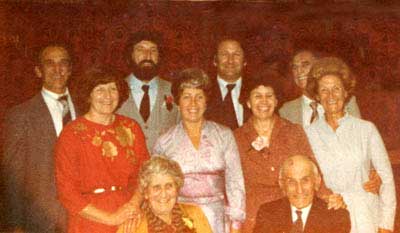
WEBB FAMILY REUNION TAKEN IN 1981 – BOB,MICK,JOHN,DICK, JANE,MOLLY,JUDY, BETT AND IN FRONT GRANNY AND PAPPY
DICK,ALMA, BOB AND GLAD’S STORY
ALMA AND GLAD’S STORY
As told by Alma Webb
The year is 1952. My sister Glad (Gladys) and I are two Lancashire lasses, aged 20 and 18 who live in Moston in Manchester and are about to embark on a train journey to spend a holiday in Calverton in Buckinghamshire. We are very fortunate as our Father works on the railways and drives the big steam locomotives all over the country, as a perk the family get free rail travel and Glad and I are excited to be going on this trip. We are going to stay with Auntie Tilly & Uncle Ike Davies, they are not our real Aunt and Uncle but are great friends of our parents. In fact Uncle Ike and our ‘Mam’ were neighbours when they were children in Manchester and it is through their friendship that we all met. Uncle Ike was transferred to Wolverton Railway Works when Newton Heath Works in Manchester was closed down, and they settled in Calverton. I believe in fate because if that hadn’t happened Dick and I would never have met.
One summers evening, when we were walking back from the Shoulder of Mutton pub in Calverton, Dick (Terry) was cycling by and spoke to us and I very brazenly (which was very unlike me) asked if he would give me a ride on his cross-bar. But Uncle Ike said not to have anything to do with him. Of course I didn’t take any notice and that week Dick took me all around the country-side on his motorbike (A Matchless) which was wonderfully exciting and all too soon the holiday came to an end. After that Dick and I had to have a long distance courtship with letter writing and visiting when we could, Dick often travelling all the way to Manchester on his Matchless which took an awful long time in those days.
Alma and Glad in Blackpool
Dick and Alma on his motorbike
Dick, Alma, Glad and Bob
During that time, Glad and Bob (Dick’s older brother) got together and had a whirlwind romance and soon were engaged to be married. When Dick got round to asking me to marry him we decided we would have a double wedding. So on June 8th 1957 at Calverton Church we both said ‘I do.’ It was a wonderful ceremony, the Vicar had only just arrived in Calverton and it was his first ceremony in the Church and his first ever double wedding. It was big news in Calverton at the time, to have a double wedding with two sisters from Manchester marrying two local brothers, it was quite an event.
ALMA,DICK,BOB & GLAD WITH GRANDAD FRED AND GRANDMA KATE
Settling down to married life was very difficult at first as both Glad and I had to leave our home in Manchester to move down to Stony Stratford, and I know my mother found this hard loosing both her daughters to marriage and living such a long way from her, as this was quite rare in those days. I missed Mum terribly, but thankfully, Glad and I had each other and the family and locals made us feel very welcome and eased us into country life. We caused quite a stir two Mancunian lasses, who spoke very differently coming to Calverton and marrying two brothers and everyone knew the Webb family so we were quite well known from the start. We first lived in King Street in Stony Stratford and Glad and Bob lived behind us in Queen Street but we soon moved up to London Road, Glad and Bob living at 114 and later Dick and I moved to 130, so we always stayed very close.
We went on to have five wonderful daughters between us. Glad and Bob had Kathryn, born May 13th 1958 and a new pram was bought. Then two years later we had Sheila (August 14th 1960) and the pram was passed to me. Glad and Bob then had Karen (born April 15th 1962) and the pram went back. Then Dick and I had Gillian (born May 7th 1964) and yes, the pram came back again. We thought we had all finished our families, but we had an electricity black-out in March 1967 and the result of that was Glad and Bob having Donna (Dec 19th1967). But we had got rid of the pram so Donna had to have all new, but we couldn’t complain as we had very good service out of it and of course having all girls the clothes came in at the right time to be passed down.
All the children were christened at Calverton Church by the same Vicar who married us and then not long after he christened Donna he sadly passed away.
As we only lived eight doors away from each other the girls grew up together and no-one could tell who belonged to who. They each having the same grandparents on both sides meant they all looked very similar and we dressed them similarly, as often I, as the dressmaker in the family, would get a cut of cloth and make several dresses for the girls.
Now our children have children of their own. Our 2 daughters (Sheila and Gillian) have produced five lovely grandsons between them, Lee, Carl, Ryan, Jordi and Jack, Glad and Bob have 1 Grandson and 3 Grand daughters, Jason, Katie, Hayley and Abby.
I’m very pleased Uncle Ike was transferred to Wolverton Works and I’m proud to be a part of the Calverton Webbs. They are a fine family and accepted Glad and I from the start and it has been a lovely place to bring up our children.
In loving Memory of
Bett Webb
Bob Webb
Judy Webb
John Webb
Alma Webb
Glad Webb
The Webb family angels. Gone but never forgotten.
DEDICATION
Dedicated to My parents Dick and Alma Webb with loving thanks for all their love and support. The best parents and grandparents ever.
Also dedicated to the wonderful Webb family who I have always been so proud to be a part of.
And thanks to my wonderful family of my husband Pete and 3 children Carl, Jordi and Jack for their help in editing and putting this updated version together and for all the fun adventures and love and support through the years. Lastly to our lovely daughter in law Lauren and our wonderful granddaughter Fiona, light of our lives, who can carry the Webb family torch into the next generations.
Website created by Sheila Saunders (nee Webb) in 2004
Relaunched 2021 in honour of my father Dick Webb’s 90th birthday 16th June 2021.
and in Memoriam of Bett Webb who passed away in May 2020 and
Alma Webb who passed away Dec 13th, 2019. ‘Always in our hearts.’

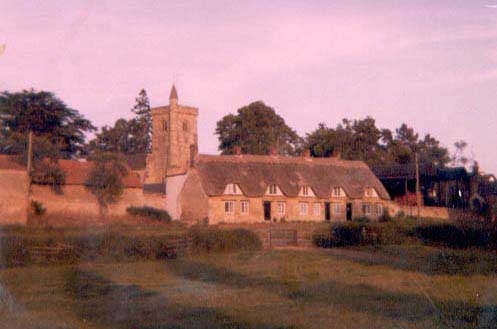
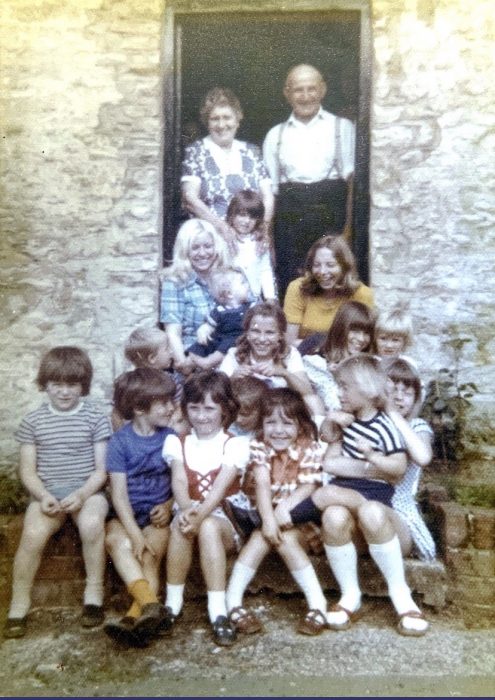
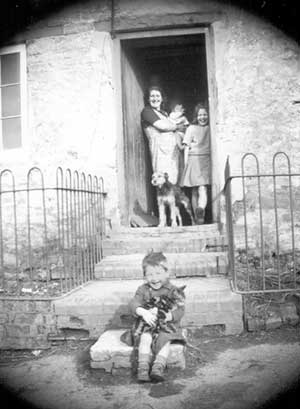
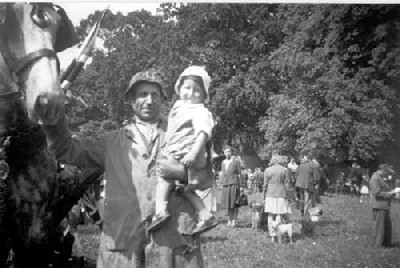
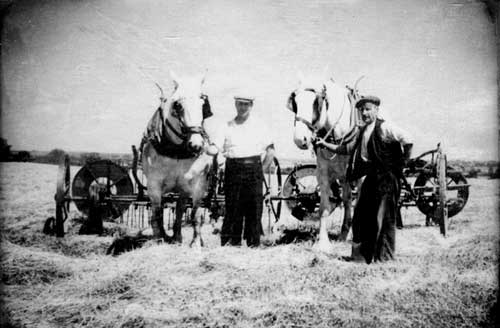
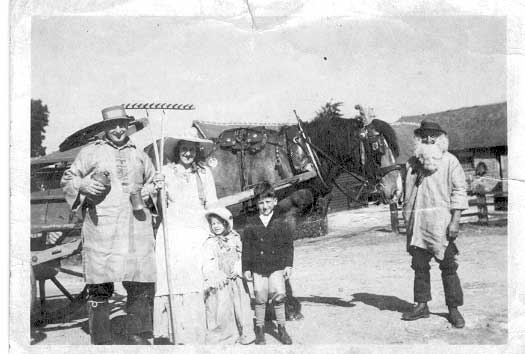
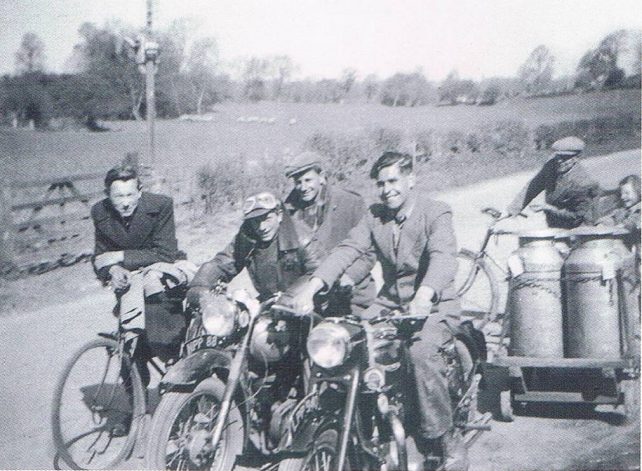




Comments about this page
I have just picked up the history of the Webb family my father knew your grandparents Ted Goodman myself worked at Wilyman Chemist during the time Glad worked for Cox and Robinson Chemist They always thought Cox and Robinson were superior to Wilyman Chemist as they stocked Helena Rubinstein Elizabeth Arden products while we had Yardley Maxfactor Goya Biba Faberge Glad and myself used to smile when visiting each other shops to borrow drugs Oh happy days when we were free of worries today youngster has to deal with Alma i also knew well I am now 82 John 87 Thank you for going down memory lane Rosalie Osborne nee Goodman 07 05 2021
Wow!what a coincidence i knew most of the Webb family Glad worked at Cox And Robinson bottom of High Street Stony Stratford i worked for Mr Wilyman Wilyman Chemist the same time top of the High Street Mr Hinch was our pharmacist Cox and Robinson always thought they were more superior and posher than Wilyman Chemist as they sold Elizabeth Arden Helena Rubens tine make up where as we sold Yardley Maxfactor Faberge Goya among others We used to borrow drugs from each other chemist so Glad and myself knew each other well i also knew Alma living in Stony Stratford i married John Osborne My dad had a scrap metal yard New Bradwell Bett Molly knew us well Fountains Farm am familiar with I could go on and on Sue Bett daughter used to set my hair John now 87 myself 82 sister Joan died 93 Sister Margaret 90 next month Margaret was always on the stage last was a Tiller Girl Happy memories when life was slower and free Rosalie Osborne nee Goodman 2021 April
Add a comment about this page